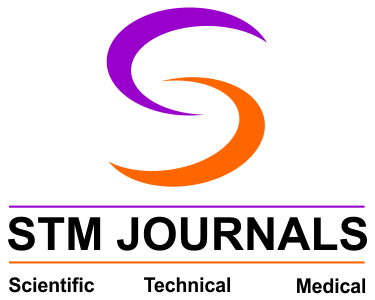About the Journal
International Journal of Radio Frequency Innovations: is a peer-reviewed hybrid open-access journal launched in 2011 aiming to bring together all the original research papers and publications that fall under the area of radio frequency. It covers a wide range of topics from antennas to GPS modules and is focused to present original papers and reviews on significant advancement. Journal also covers a wide range of instrumentation technology and theoretical representation of technologies of recent impacts.
Focus and Scope
-
Radio Frequency oscillators: Electronic oscillator, Signals, Electronic circuit, Sine waves or Square waves, Direct current, Inductor, High and low bands, Amplifiers, Frequency, and Quartz crystal.
-
Transmitters and Transmission lines: RF Power, Impedance, Velocity of propagation, Attenuation, Coax, Specialized cable, Wavelengths, Narrowband, Sensor arrays, and Array signal processing.
-
Radio Frequency connectors: Electrical Connectors, Coaxial cables, Electromagnetic interference, Insertion force, Ohmic electric contact, UHF Connectors, TNC Connectors, BNC Connectors, Plug, Jack, and Frequency range.
-
Antennas: Array of conductors, Radio waves, Parabolic reflectors, Electromagnetic field, Speed of light, Beam antenna, Isotropic radiator, Transducers, Antenna counterpoise, and Scattering Coefficients.
-
Receivers and Tuners: Alternating currents, Electronic amplifier, Demodulation, Broadcast receiver, Radio carrier wave, Amplitude modulation, Frequency modulation, DAB, Analog-to-digital converter, Stereo, and Superheterodyne receiver.
-
Amplifiers: Predistortion, Bipolar junction transistors, Radio transmitters, Electrical overloads, Breakdown voltage, Frequency-modulated system, Bandwidth, and Clipping.
-
Modulators, demodulators, and detectors: RF carrier wave, Sinusoidal signal, Continuous wave modulation, Amplitude modulation, Frequency modulation, Phase modulation, Pulse amplitude modulation, Coherent detector, Matched filter, Rake receiver, Pulse compression, Received Signal Strength Indication, Maximum and likelihood detector.
-
Radio Frequency filters: Low pass filter, Band pass filter, Passband, 3G mobile communication, Cellular networks, Butterworth Filter, Chebyshev, Bessel, Elliptic, and Land mobile radio cellular systems.
-
Radio Frequency shielding and Ground plane: Radio frequency interference, Magnetic wave oscillating, Electromagnetic noise, Coupling Mechanisms, Capacitive Coupling, RF shielding materials, Wire Mesh and Screens as a Faraday Cage, Solid Enclosures, Gaskets, O-rings and Cable Shielding.
-
Radiofrequency module: Optical communication, RF CMOS technology, Transmitter modules, Receiver modules, Transceiver modules, System on a chip (SoC) module, UART, Zigbee, Bluetooth Low Energy, and Remote controls.
-
GPS & GLONASS Modules: SMT Modules, Antenna Companion Modules, GPS receiver, Processors, Antennas, Arduino, Raspberry Pi, Random access memory, Land vehicle, and Restricted satellite visibility condition.




